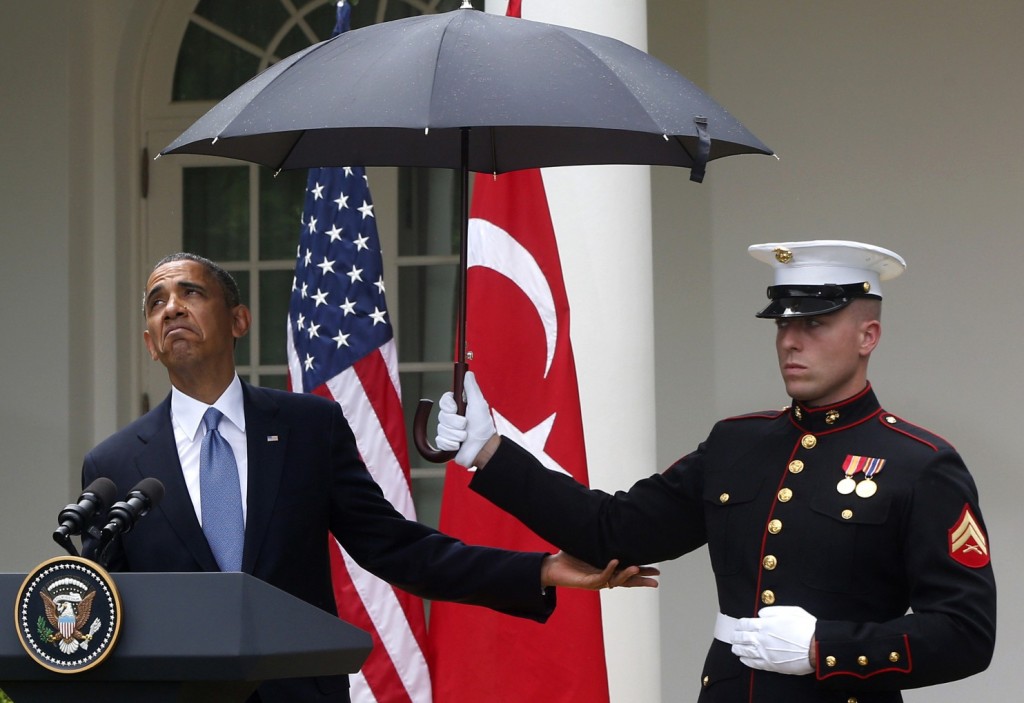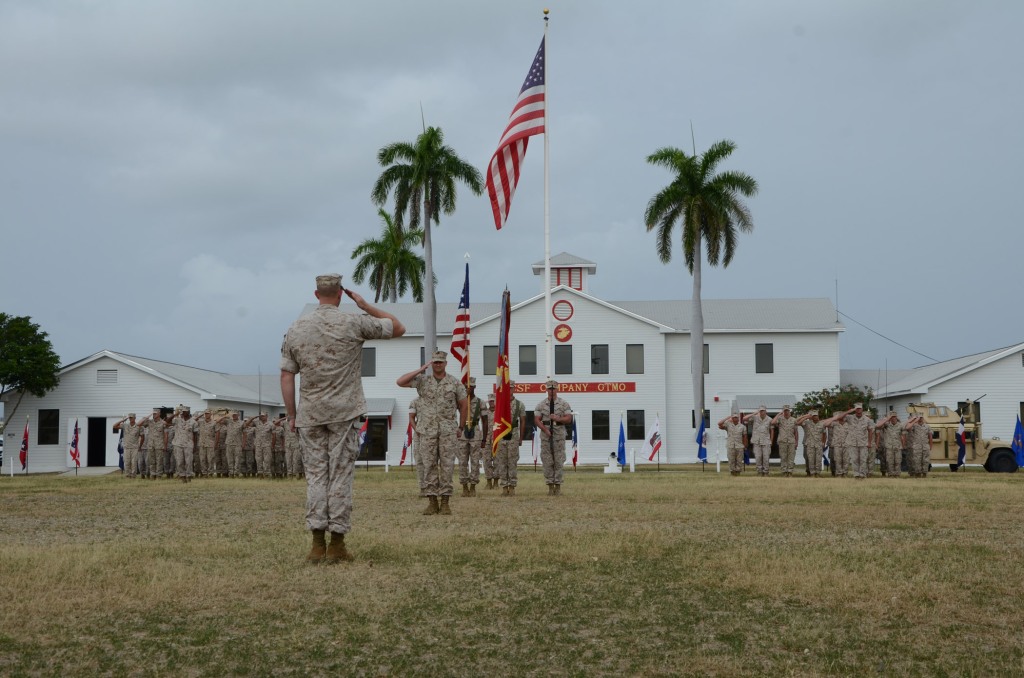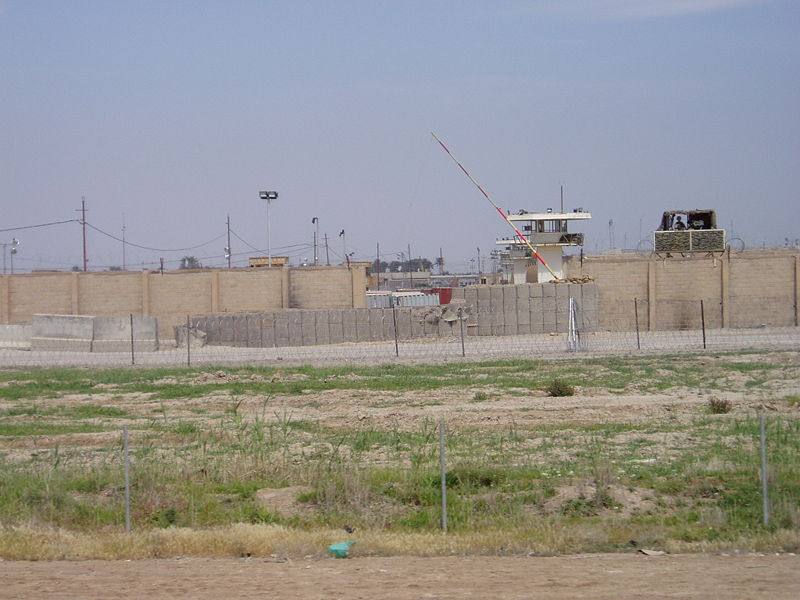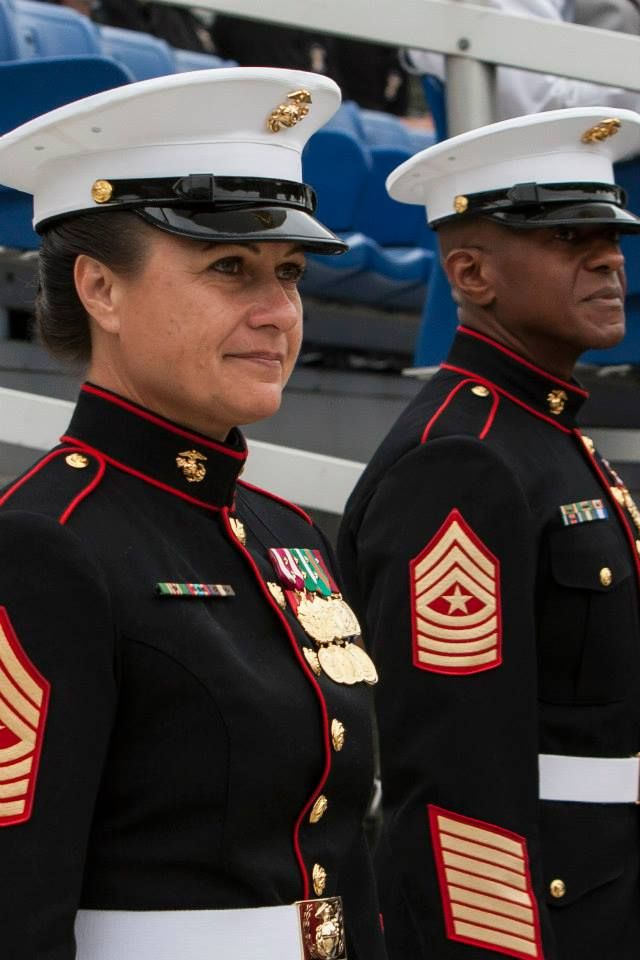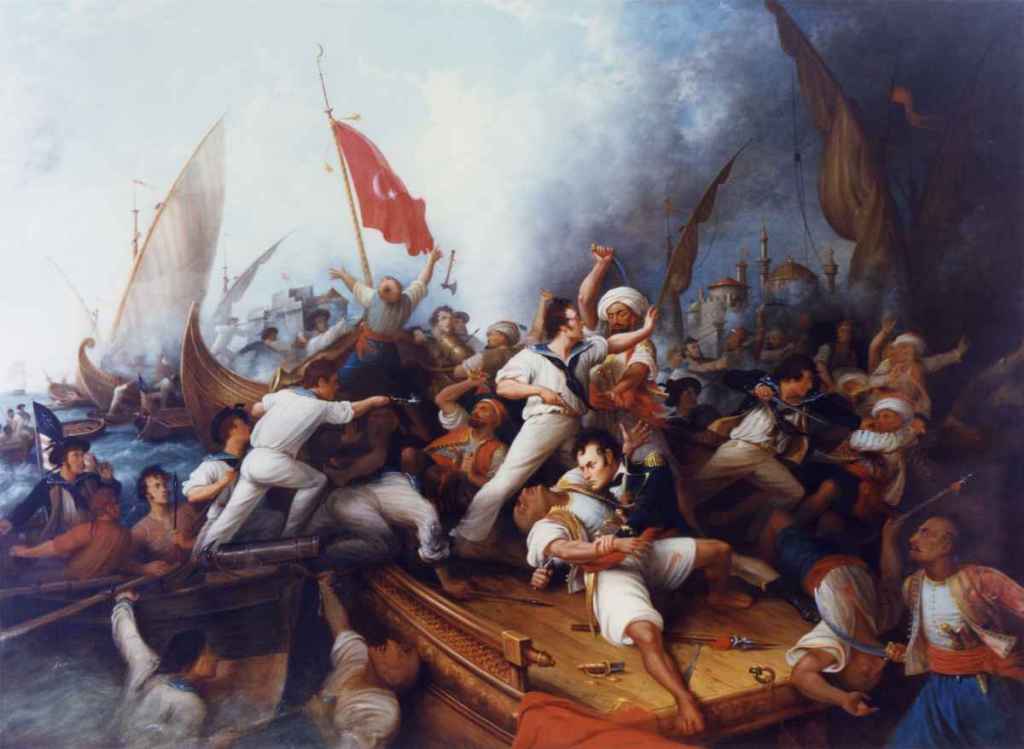
Bottom line up front: I am FOR retaining the United States Marine Corps, in its traditional, ‘First to Fight,’ ‘Always Faithful,’ ‘The Few, The Proud, The Marines’ existence, and for future operations. I believe that not only should the Marine Corps LIVE, but that they should be honored, preserved and resupplied as the very essence of American tenacity, spirit and achievement.
From the halls of Montezuma, to the shores of Tripoli, the United States Marine Corps have bestowed great honor upon this nation over and over again since 1798. But that’s not the only reason we should keep them.
Our enemies fear the Marines for their ‘shoot first, ask questions later,’ reputation. Although an oversimplification, that reputation was hard earned, but can be easily lost.
The very question of whether or not to keep the Marine Corps as a viable, independent unique force should send shivers down every American spine. Some say it is a given that the Marines will either be disbanded or will be changed so much as to be unrecognizable.
Some say there is no need for the redundancy of aircraft, artillery, tanks, landing craft, etc., that the other services could do these things more economically, or efficiently.
The mission of the Marines is not about saving money, it is about saving lives, and taking the lives of the enemy in order to preserve, protect and defend this nation and our interests, at home and abroad.
The Marines are special, and in an essential way. They provide a fearsome force at the tip of our spear. As an Army officer, I was taught that Marines were Special Forces, just like Green Berets, Rangers, Airborne, Scouts, SEALs and others. Not to steal anyone’s thunder or purpose, but they belong in that category, based on mission capabilities and stature.
The civilian authority that runs our military do not like the Marines. In fact, former President Obama LOATHED the Marines, and took opportunities to embarrass and humiliate them. Having a Marine hold (of all things) an umbrella over him at an outdoor news conference, at one point touching the elbow of the Marine, as if to say, “A little higher,” was the epitome of humiliation. No Marine worth his salt would ever consider touching an umbrella for themselves, nor hold it for anyone else in the chain of command. The lack of respect shown in this one gesture is all you need to know about the lack of understanding and appreciation even the President had for the Corps. Shall we also mention the time, when while exiting a presidential helicopter, President Obama offered a weak salute to the two Marine guards, while holding a coffee cup in his saluting hand?!
These incidents may seem insignificant to the casual observer, but I assure you, these intentional slights were not lost on this veteran. I took them personally, and I am not a Marine.
My first professional interaction with Marines came in the winter of 2002, after a deployment to Guantanamo Bay, Cuba, as part of a liaison Army incarceration unit sent to guard and care for detainees in the Global War on Terror.
A Marine general was in charge of the operation briefly then, and Marines had helped stand up the mission at Camp X-Ray, and assisted in providing security and in-processing. In fact, the cover of my memoir about my time at Guantanamo Bay, taking care of bad guys, “Saving Grace at Guantanamo Bay,” shows a Marine guard giving water to a detainee, a display of compassion, which is the strength of a true Marine. Navy Corpsmen, assigned to the Marines at Gitmo were also front-and-center when my small liaison detachment arrived.

Because transportation was sparse, and my unit vehicles were following us via slow moving barge from the US, rides to different locations were hard to come by. 15 passenger vans were highly valued, as to get from place to place could take hours by Gitmo bus or on foot; hitching rides became common place.
I swear to you, before my vehicle arrived from the US, the only people who would ALWAYS stop for me, a US Army captain, were the Marine Corps enlisted rank drivers of their 15 passenger vans. Would an Army driver stop, with 15 seats available? No. Navy? Nope. Even the Coast Guard would zip right by. But empty or full, the Marines would always stop: “Need a lift, Sir?” they would say cheerfully.
My opinion of Marines was strengthened by their work ethic and focus on training. Daily, as we crisscrossed the base at Gitmo, one would always see Marines training, in full gear, in full sun, day in, day out. Hand-to-hand combat, road march, formations, tactics, sometimes in triple digit heat, in the rain, wind, or . . . no snow, but it got a bit dicey out there during land crab mating season! The Marines were always there, working hard, ready for anything.
From stories my dad told about his time in the Navy on CV-60, the old Saratoga aircraft carrier in the mid 1950’s, I know that Marines guarded the Captain of every naval vessel, a holdover from back in the day when there were possible mutinies. My dad had an unintended face off with a Marine when he accidentally got too close to the Old Man. Marines were trusted loyalists.
I know that Marines are tasked with guarding presidents and foreign embassies.
I also know that little by little, those missions have been changed, especially the embassy security mission. From full battle rattle and Quick Reaction Forces, to civilian clothes and pistols, the Marine guard forces that defend our overseas missions has become a joke. All part of the, “Let’s get rid of the Marines” mission creep by the Left.
In my opinion, you only get one chance to make a good first impression, and to a bad guy scoping out embassy defenses, it’s no time to go small or go quiet. The only thing they shouldn’t know or see is how much of what and where we have to counter any attack. What they should see is well armed, well supplied killing machines, watching them and opposing them.
The principle of economy of force should not apply to Marine guards. The terms ‘robust’ and ‘deadly’ come to mind. Like at Abu Ghraib Prison in Iraq, in 2004-2005.
I spent several months at Abu Ghraib, where we held detained persons, and we had Marine guards on the walls and as a QRF. We also had contact with Marine Cobra helicopters nearby.
On April 2, 2005, the day after I left Abu Ghraib for another assignment, insurgents executed an anticipated attack, with rockets, mortars, crew served and small arms, and vehicle born improvised explosive devices (VBIEDs).
I was at the 18th MP Brigade Headquarters Tactical Operations Center (TOC), when calls came in from Abu Ghraib for support during an insurgent attack.
We had been briefed on the probable attack for weeks. They would block both avenues of approach to the prison, one on the north and the other on the south. They would attack the front gate and walls with VBIEDs. They would assault with ground forces in an attempt to liberate detained persons.
Later, security video and video obtained from a defeated enemy showed exactly that plan attempted. Enemy rockets were deployed from the approaches. VBIEDs hit the front gate and attempted to get close enough to breach the east wall of the prison, but failed.
About a battalion sized element approached from the east, but was defeated by the QRF, which, using small arms, crew served weapons and armored vehicles, came from inside the prison walls, identified, closed on and then killed the enemy, and then went back inside. A second wave of insurgents attacked from the same position, and again was defeated by the Marines in similar fashion.
Too late, Marine Corps Cobra attack helicopters arrived, only to find the battlefield without a living enemy to fight.
78 objects larger than a .50 cal. round were tracked inside the walls by Marine counter battery artillery radar. Not one US personnel were killed and all the attacking enemies were killed by the Marine guard force, saving my buddies and colleagues I had left back at the prison.
I remember having chow with several Marines during my time at Abu Ghraib. “How’s it going, Marine?” my fellow Army officers and I would ask.
“Could be better, Sir,” the dusty, sweaty and tired Marine would reply.
“How’s that, Marine?” We would say.
The Marine would reply, “We could be killing bad guys, Sir.”
Every morning at about 9:30 a.m., insurgents would fire into the prison from apartments overlooking our western flank. Marines in the guard towers on the walls were not allowed to open fire unless they could clearly identify an enemy threat. In other words, the Marine would need to see a bad guy, weapon in hand, actually firing at them in order to return fire lawfully. This caused immense consternation among the Marine guards, who were tasked with playing a deadly game of whack-a-mole.
If they fired at what they thought was an insurgent, it could actually be a civilian with a broom stick – which none of us put past the bad guys to do, just to frustrate the Marines. If a Marine fired and shot a bad guy, but one who was not armed or directly engaged in hostile activities, the Marine could be brought up on charges.
I felt bad for the Marines, who probably hated guard duty with a passion. I am sure they would have been much happier hunting and killing the enemy.
Our armed forces have seemingly always had Marines; our shock troops, our razor’s edge, our pride and joy.
Strategically, Marines are our best chance at ending conflicts before they begin, and ending them swiftly should they start. More robust than Navy SEALs, more capable and mobile than Green Berets, more deadly than Army Rangers or Airborne, Marines truly are ‘A breed apart.’
The United States Marine Corps came to be during a time when armed conflict sought first to influence the enemy through non combat tactics. The goal was to get the enemy to flee the battlefield in fear without battle. In fact, the Marines embody the ancient Chinese general Sun Tzu’s philosophy that the most skillful military is one who can subdue the enemy without battle.
This plays into the tactic of having robust, uniformed Marines at every embassy, enough to leave no doubt about their lethality or desire to rein terror down on any who would challenge them.
In the end, the best, most effective force is a balanced force. The Marines provide that balance, on the high end.
Yes, we have an Army, a Navy, an Air Force, a Coast Guard, and even a Space Force. Why on earth do we need Marines?
We need Marines because they are cut from a different cloth than the others (No disrespect intended, none take from this retired Army officer). They are one-track-minded – WIN!
Marines need to have all of the tools necessary to destroy an enemy incursion before it takes hold, or even happens. They need to be flexible (“Semper Gumby”), lightening fast, and deadly.
The term “Take no prisoners,” is one we often associate with the Marines. But they are aware of and compliant with the Law of War and the Geneva Conventions, sometimes grudgingly, but faithfully. A Marine will do as he or she is told, immediately, but not without understanding or appreciation for treating others with dignity and respect should they be captured. I saw this at Gitmo, I saw this at Abu Ghraib, and I have heard about it, many times, through stories, books and documentaries. Marines are gentlemen and ladies, even when they don’t want to be.
It’s been said that you need the Army to hold the ground, but the Marines to take it.
I have considered it a great honor to have known and served with United States Marines. I actually wanted to be a Navy Corpsman so that I could serve with and heal them, but there was not a Navy Reserve base near enough to my home when I joined the service to accommodate that desire, so I did the next best thing: I became an Army Combat Medic (5 years), then Medical Service officer (17 years).
Some people have already made up their minds that the Marine Corps is outdated, unnecessary and redundant. To those people I say you are too WOKE to appreciate the most masculine force in the US military (not that females cannot or have not brought their own brand of fierceness to the Corps). The Marines are a breed apart, male or female, and embody all that we would want or expect in a force needed to make the enemy flee or be killed.
We need them on that wall. We want them on that wall, because without them, I for one would not sleep well at night.
Please tell your Congressperson now, that you fully support keeping, preserving and modernizing our Marine Corps, both in their traditional role and for future OPS. Thank you!
Ooh-Rah!
